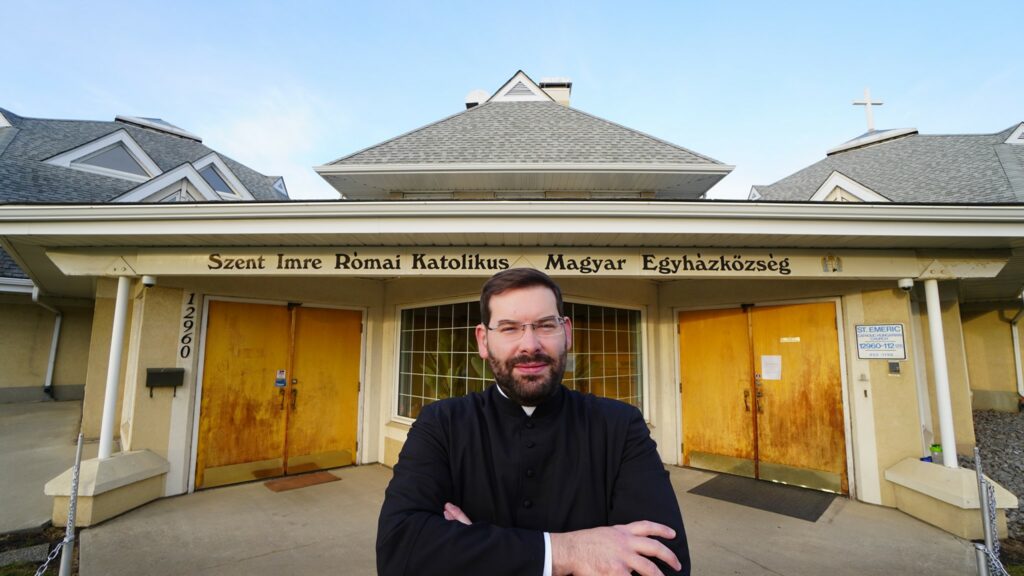Hi Father Matthew,
You recently completed your doctorate, congratulations! What was your research about?
My doctoral research was about how the Seven Gifts of the Holy Spirit operated uniquely in Christ according to the Biblical commentaries of St. Thomas Aquinas.
It is very curious that, despite being a divine Person, He needed yet another divine Person alongside Him — the Holy Spirit — in order to be “the Christ.”
How did you end up choosing that divine partnership as your topic?
My interest was stirred up when I visited Chartres Cathedral for the first time in 2017, where I saw the beautiful “Tree of Jesse” lancet window showing Christ surrounded by seven doves. Then the question came to me: ‘How did Christ experience the Holy Spirit differently than we Christians do — especially since He did not have the theological virtues of faith and hope but only charity?’
Why is the topic important to Catholics, or why you undertook this journey?
Many lay Catholics have fallen prey to the worldly idea of being “spiritual, but not religious,” but there is no spiritual life without the indwelling Holy Spirit and his Seven Gifts. And we clerics have often been very controlling and traded spiritual authority for excessive juridical power.
What is needed is a proper equilibrium of the two — and that cannot be realised apart from a conscious and willful cultivation of the Seven Gifts in tandem with the enjoyment of the Holy Spirit’s indwelling presence.
How might it be useful in your teaching/pastoral work?
The relevance of my research project can be found in three broad areas:
First, insufficient attention is given to the Seven Gifts in Confirmation prep in terms of what they do in terms of personal surrender and how to use them to advance personal holiness and build up the City of God.
Second, there are many parish and diocesan renewal programs that rely more on policymaking and administrative ingenuity than the aid of grace, which is why Pope Francis has rightly criticised a certain Pelagian tendency in the Church; the Seven Gifts is the very ‘engine’ of the Church’s vitality and it is important to be attuned to them.
Third, the subject of the Seven Gifts was removed from moral theology in the 16th century, which is why Catholic life up to the Second Vatican Council was very rules-oriented. I am convinced that this (in addition to a Jansenist mindset inherited from the French Church) contributed to the abuse that many Canadian priests and religious inflicted upon Indigenous children placed in their care.
It is clear, therefore, that exercising the Seven Gifts of the Holy Spirit must be the very ‘rubric’ of imitating Christ and living out the Church’s mission.
How did your journey go?
I was blessed that all of St Thomas’ Biblical commentaries were made available and online in English and French, which made word-searches easier than having to peruse the Leonine collection (which is a critical edition of most of Aquinas’ writings).
Did it take a long time to go through and understand all that?
I began my studies in 2018; after two years of coursework, I was able to spend an entire year composing my dissertation because of the plethora of resources available at Dominican University College and online.
The first leg of the journey — the civil doctorate (PhD) — is finished; I have until 2024 to have my dissertation published in order to obtain my canonical doctorate (STD), though I expect it to be done sooner than later.
Who do you thank for benefits you received from doing this study?
I am grateful to the Archbishop for sending me to Dominican University College in order to serve our local Church better, and I am grateful to my Doktorvater (doctoral advisor), Revd. Dr. Maxime Allard OP, for helping me to know the mind and heart of St. Thomas Aquinas.
Above all, I thank the Holy Spirit for his interior guidance during my studies and my growth in intimacy with him over the last three years.
Father Matthew Hysell is pastor of St. Emeric parish in Edmonton and he also serves St. Mark’s Catholic Community of the Deaf.

